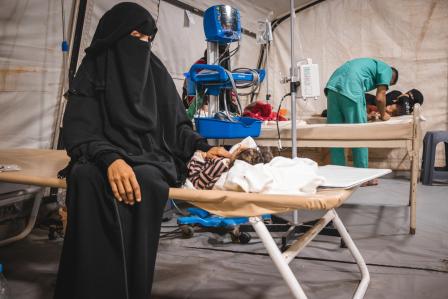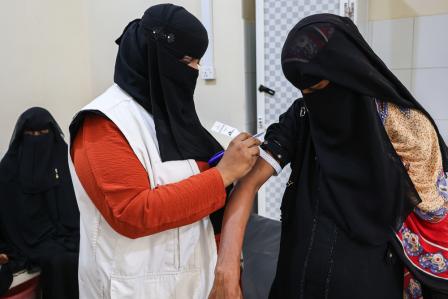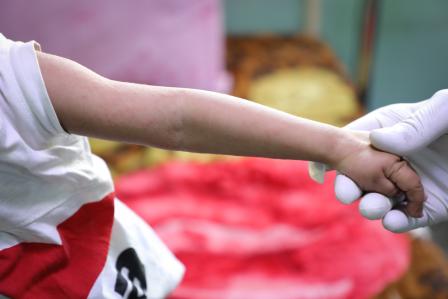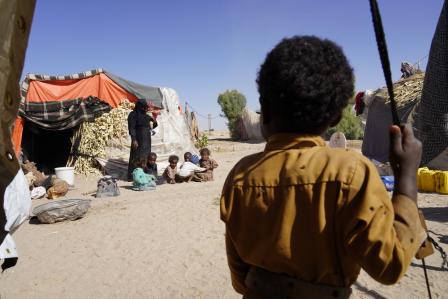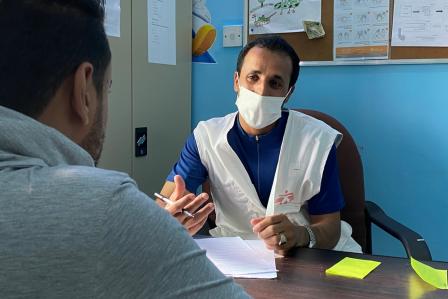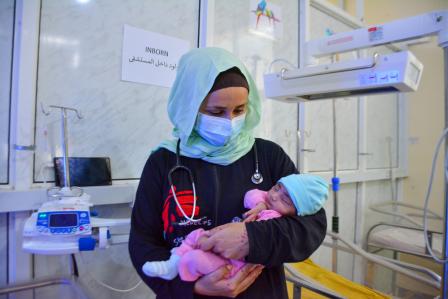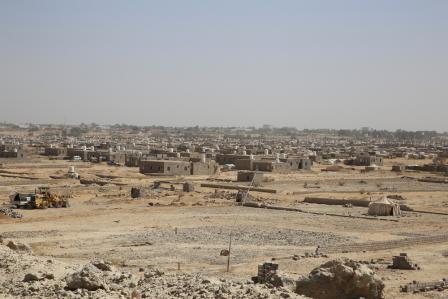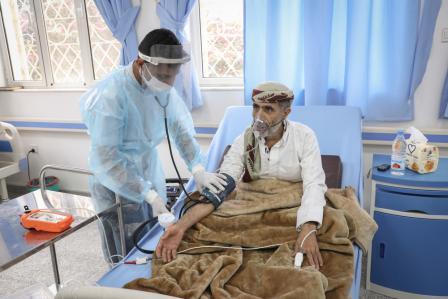Insha'allah: How I Find Hope on a Maternity Ward in Yemen
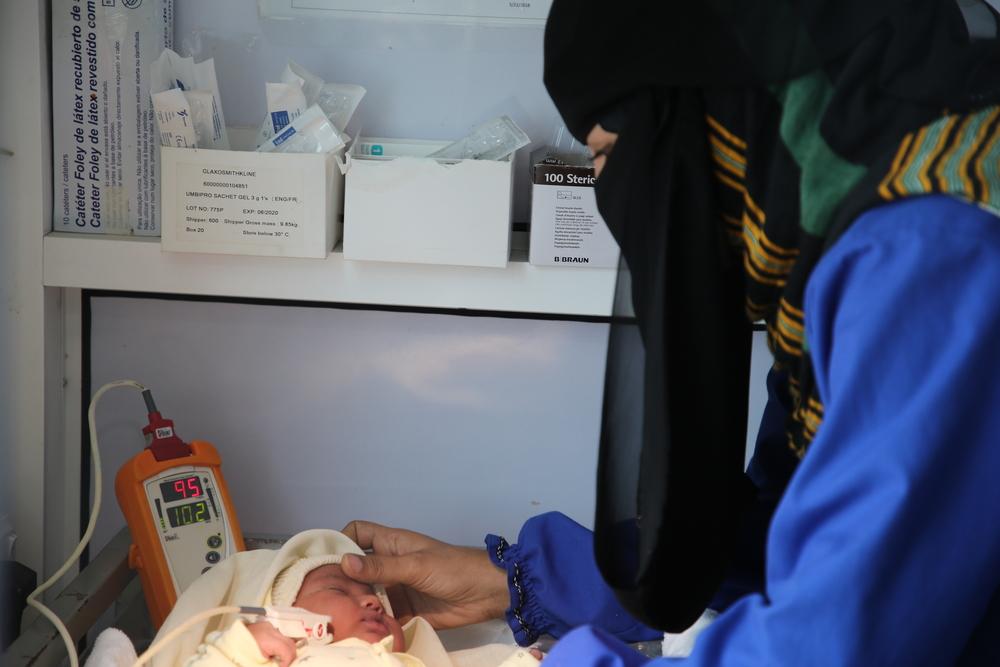
Wadha, the midwife at MSF's Mother and Child Hospital in Taiz Houban, southwestern Yemen, is helping the women patients giving birth and their babies.
Insha’allah is a phrase that seems to be uttered in every other sentence here. It literally means “If God wills” and is used where I would use the word “hopefully”.
One of my Yemeni colleagues explained for me that in Islamic culture, it is usual to avoid making definitive statements, as only God knows what will happen in the future.
So, for example, if I were to ask the doctors at our hospital “who is free at 3 pm to come to a teaching session?”, those who are intending to come will reply “Insha’allah I can come”.
To my English-speaking ear, it sounds like “maybe I can come if circumstances allow”, but the team has helped me understand that it actually means “I can come”.
It’s simply that uncertainty is woven into the Arabic language.
Uncertainty
I have been thinking about uncertainty.
In the UK, where I usually work, women ask me how they can ensure that “everything will go according to the birth plan”. Even common birth-related complications – an emergency Caesarean, an assisted vaginal birth, or bleeding after birth – can lead to women feeling upset as things did not go according to plan.
However, in Yemen, the lack of access to antenatal care means the number of women experiencing severe complications from childbirth is much higher.
The admission criteria for our neonatal unit is based on the care we can provide. The unit has tube-feeding, oxygen therapy, antibiotics to treat infection and phototherapy for jaundice. However, we can’t provide the breathing support needed by very preterm babies. So, unfortunately, these little premature babies usually pass away shortly after birth.
Maternal mental health
Stillbirth, neonatal or childhood death are so common here. When we do the ward round in the postnatal ward, we routinely offer mental health support for all the women who have lost their babies.
At our hospital in Taiz, we have a mental health team who offer counselling. Some of the mothers accept this care, but most of them decline. This might be due to a stigma against accepting mental health support: this exists is in many cultures, including mine in the UK.
Or, as a nurse explained to me, it could be because in Yemeni culture many women and families are more accepting of death. She said that for many people death is a common occurrence and seen as a part of life.
This week I had to terminate the pregnancy of a woman with severe pre-eclampsia. Her blood pressure was very high and we were having trouble controlling it. She was about 28 weeks pregnant and though her blood pressure went down after the birth, her baby didn’t make it, as expected.
I told her I was really sorry for her loss and she smiled at me and said “It’s ok. Allah needed him.” Insha’allah her next baby will survive.
Out of reach
In reality, every family is different. Another woman I met this week had developed very early signs of chorioamnionitis (an infection in the womb that spreads to the baby) after her waters broke a few days prior.
She was about 28 weeks by estimation, in her first pregnancy. Her baby weighed less than 1kg on the ultrasound scan.
We would ordinarily induce labour once infection had settled in, but in her case, I thought we would give her another day to see if her symptoms settled down, as the baby was still so small. A few hours later, Allah had made his decision and she progressed quickly into labour.
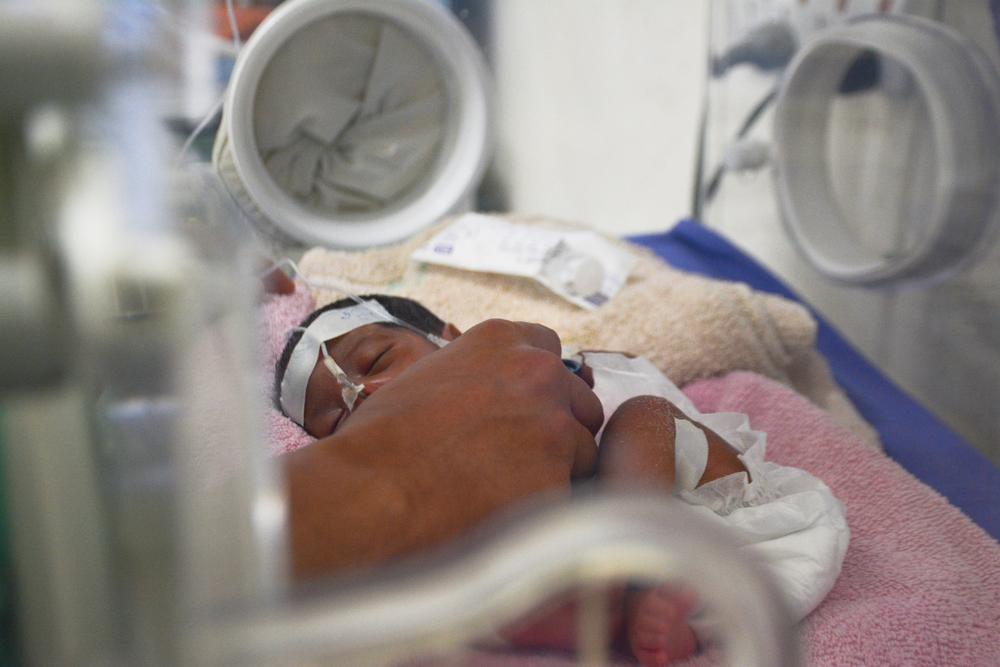
A premature baby receiving specialist neonatal care at a different MSF hospital in Yemen. © Nuha Haider/MSF
When the baby was born, she was small but otherwise perfect and the family opted to pool their financial resources together to pay for the very expensive private neonatal intensive care with breathing support for her baby.
This is something that is out of reach for the majority of Yemeni families. Due to the breakdown of the public healthcare system in the country, the private sector has flourished for those who can afford it.
The mother told me she would sell the gold she got for her marriage in order to help pay for the private neonatal care. She understood this was potentially a long and expensive journey ahead for her baby and her family.
Insha’allah the sacrifice will be worth it. And Insha’allah her next pregnancy will go better.
Strong and healthy
This week, we did a Caesarean for another lady who suffered critical blood loss with a condition known as placenta accrete, where the placenta grows into the previous Caesarean scar. A hysterectomy (removing her womb) was required.
She had two sons, but had lost four children previously. This time, her third son was delivered alive and healthy. He is really cute.
In spite of all she had been through, she was so grateful that we were able to care for her here, deliver her baby safely, and save her life.
Women here don’t have easy access to accurate health information. This lady was not planning to breastfeed her son because she said that her babies that died were breastfed. She was afraid that breastfeeding caused them to die.
We explained that her babies were less likely to die if they were breastfed, and tried our best to encourage her to try. We also helped her to learn the signs of when she needs to bring her baby into the hospital in case he gets sick or isn’t feeding well.
Insha’allah he will grow up to be strong and healthy.
Better times ahead
It is Ramadan now, so the days are quiet.
The traffic and everyday hustle and bustle is less in the daytime, and every evening the music of prayer from the mosques play over loudspeaker marking the time of iftar, where everybody breaks their fast with family members.
In the hospital, the staff tell me “we are a family here” and if the wards are not busy then they are all in the staff room breaking their fast together. They each bring a delicious dish of food in to share and spread on the floor of the staffroom (the cleanest hospital staffroom I have ever seen), and they sit cross-legged eating together.
This is a country where faith binds people together through the hard times and the fun times.
Some things are out of our control – war, poverty, life, death – and Insha’allah there are better times ahead for Yemen.
Sabrina is MSF's Obstetrician on a maternity ward in the city of Taiz, Yemen.
